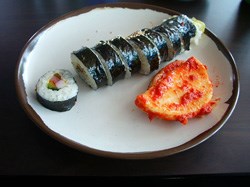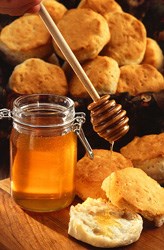Top stories


Marketing & MediaAI changed how I work as a designer, faster than I expected
Emmanuel Naidoo, Ignition Group 10 hours




More news












ESG & Sustainability
Can Ramaphosa’s crisis committee solve South Africa’s water woes?














If you have aspirations of writing for a hospitality magazine and specialising in food and wine feature writer, here is some advice on getting the process started.
Before you can become a food feature writer, you need to learn to just be a writer. Writing is a challenging profession that requires you to balance inspiration, creativity, hard work, adherence to briefs and personal style. Do as much writing as you can to hone your skills. It's a good idea to start a blog on the topic that you eventually want to write features about - this will give you writing practice, a better sense of the field and what readers enjoy, and some valuable practical experience.
A feature article is a long piece of non-fiction writing that covers a newsworthy or important topic from an interesting perspective, that asks a poignant question, and that delves deeper into the matter than an ordinary news report would. Features are about the people and stories behind the news. It's not enough to write a review of a restaurant or a description of a new trend. You need to really look for the stories behind the facts, and analyse if they're worth telling.
For example, organic food is a major new trend in supermarkets and restaurants. But where does it come from? How does it work? Is it truly healthier than normally grown food? What are the environmental impacts, good or bad? These are just some questions you should ask to get yourself thinking about the topic - but the process doesn't end there. You still need to come up with a strong central story idea. Maybe you can track down somebody who has decided to "go 100% organic" and see what impact it has had on their life. On the other hand, perhaps you can look into the plight of farm workers who aren't trained to use new organic processes and struggle to keep their jobs.

These ideas go far beyond simply introducing readers to a topic - they give them a personal, often unique insight into an abstract discussion. Finding a clever, poignant, and marketable idea is the hardest part of crafting a good feature.
Good features need to be filled with facts, descriptions, personal experiences, historical and social context, interview fragments - in other words, all of the fruits of research. It's impossible to write an excellent feature story without visiting locations, speaking to people and reading widely about the topic. Features come to life when they are infused with details and information, and these details can give valuable clues on the nature of the story and its characters. Which sounds better? "We were served the meal with silver cutlery." Alternatively, "We were served the seared salmon on chipped Regency-era porcelain, with antique but slightly tarnished silverware." The detail in the second option paints a much richer picture - chipped plates and tarnished cutlery give a sense of glory days gone by, of history and character.
Since features usually include personal stories, you will often need to go out and talk to people. When conducting an interview, or just getting a statement, be polite, professional and respectful - but don't be shy to ask difficult questions. Often, the best stories come from the people directly involved in them, and may give you whole new avenues to explore.
For more information on the University of Cape Town (CFMS) Feature Writing course, contact Amy-Jane on +27 (0) 21 447 7565 or az.oc.retramsteg@enajyma, or visit www.getsmarter.co.za for further information.